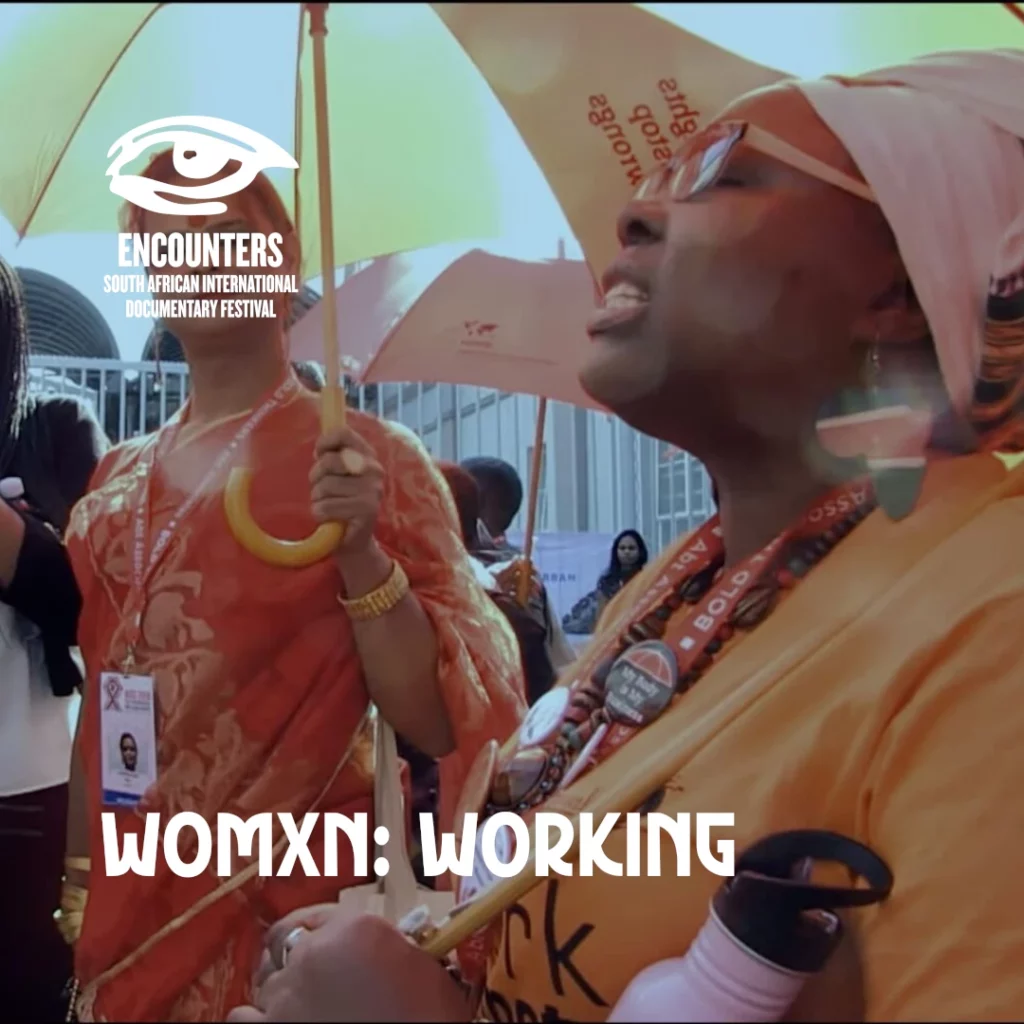By: Mohamed Sayed Abdel Rehim
In the cinema of protest, few voices dare to echo from the margins so defiantly. But Womxn: Working, the South African documentary directed by Shanelle Jewnarain, does not merely echo — it howls. At 67 minutes, this urgent and unflinching film does what too few works of art dare: it demands dignity for those society has tried to bury beneath silence, shame, and systemic cruelty — the sex workers of South Africa.
In the tradition of cinema that bleeds, Womxn: Working arrives as a beautiful lament. It walks into a space that remains taboo not just in Africa, but globally — a space where the rhetoric of rights falters, where even the fiercest feminists grow silent. For when the word “sex” precedes “worker,” solidarity too often evaporates.
Jewnarain’s film is not just about sex work. It is about listening — radically, painfully — to those who have lived what others only theorize. It is about peeling away the labels imposed by law, morality, and polite conversation, to reveal women — thinking, feeling, resisting women — whose daily labor lies not only in bed but in survival.
In South Africa, where the legacy of violence and colonial patriarchy is still encoded in the veins of its cities and institutions, Womxn: Working dares to speak of a profession treated with contempt by every layer of society: the police, who extort and rape with impunity; the lawmakers, who criminalize with self-righteous ignorance; the public, who moralize with venom; and even some human rights defenders and feminists, who draw their circles of empathy too tightly to include the “immoral.”
Here, Jewnarain doesn’t offer simple narratives. This is not an appeal for pity, nor a film crafted to soothe liberal consciences. Instead, we are drawn into a world of sex workers who are not victims, but thinkers. Women who not only articulate their pain, but demand that it be addressed. They know they are criminalized, stigmatized, and abused — and they name their tormentors, from violent clients to brutal police. They recognize their rights not as a luxury but a necessity, a matter of survival.
The testimonies we hear in Womxn: Working are raw, and at times unbearably intimate. Yet through all this, Jewnarain’s camera does not exploit. There is grace in how it watches. She gives her subjects the time to speak fully, the space to reclaim their narratives.
But perhaps the film’s most revolutionary gesture lies in its refusal to end with despair. Amidst the darkness, Womxn: Working captures the rise of a new alliance — South African activists, many of them former or current sex workers, organizing across the continent and beyond. They are not asking for charity. They are demanding recognition. Legal reform. Medical access. Protection from violence. And most urgently, a shift in how the world sees them.
This is where the film transcends reportage and becomes intervention. It forces the viewer to confront a global hypocrisy: we celebrate human rights, but only for the “acceptable.” We preach freedom, but not for women who sell sex. Even in circles of advocacy, sex workers are spoken about, not spoken with.
Womxn: Working shows that no one understands the injustices faced by sex workers better than the workers themselves. Their knowledge is embodied. Their demands are precise. Their language is not theoretical — it is forged in fire. These are women who refuse to be defined by others’ discomfort. They do not want to be rescued. They want to be respected.
Jewnarain does not just capture a story. She stakes her voice beside those who have been silenced. And in doing so, she reminds us what the best documentaries can do: they can unsettle, unmask, and unmake what we thought we knew.
This is not a film to watch lightly. It is a film that demands your unease. It demands your complicity. It demands your question: why, in 2024, do we still treat laboring bodies as disposable? Why do we still divide women into “worthy” and “unworthy” of rights?
Catch the film at the Encounters South African International Documentary Festival: http://encounters.co.za/
Screening Schedule
21 June 16:30 Labia (Cape Town)
26 June 18:00 Bertha Isi (Cape Town)
25 June 18:30 Bioscope (Johannesburg)
This review emanates from the Talent Press programme, an initiative of Talents Durban in collaboration with the Durban FilmMart Institute and FIPRESCI. The opinions expressed in this article are those of the author Mohamed Sayed Abdel Rehim and cannot be considered as constituting an official position of the organisers.

